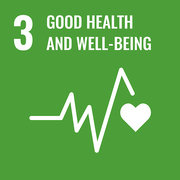
Tracking virus-transmitting mosquitoes is important. Citizens can help researchers with the Mosquito Alert app
Italy is always at the centre of scientific research on mosquitoes, which must be carefully studied in our country as well. With their annoying bites mosquitoes can also transmit diseases to humans and animals. This happens mainly in tropical regions where more than 700,000 deaths a year are attributed to mosquito-borne diseases. It is estimated that about half of the world's population lives in areas where it is possible to contract an infection from a mosquito bite.
This summer, Italy is experiencing a sharp increase in cases of the West Nile virus compared to previous years. This virus is usually transmitted from mosquitoes to birds (and vice versa). Occasionally, some mammals, such as horses and humans, can be infected through the bite of a mosquito that has, in turn, become infected by biting a sick bird. Most infected persons do not show any symptoms, while around 20 % show mild symptoms: fever, headache, nausea, vomiting, enlarged lymph nodes, and skin rashes. Only in rare cases, and mainly in the elderly, does the virus produce serious neurological problems and can be fatal. Since it was first reported in 1937 in Uganda in the district of the same name, the West Nile virus is now present in the Middle East, North America, West Asia and Europe, where it appeared in 1958 and in Italy in 2008.
'Unlike horses, in humans, there is still no vaccine for West Nile disease and prevention consists only in defending oneself against mosquito bites, for example, with repellents and mosquito nets,' says Alessandra della Torre, coordinator of the medical entomology research group at Sapienza. Prevention must be carried out above all at an individual level, but both citizens and public administrations must be vigilant: the objective is to eliminate, whenever possible, the sites where the larvae (water collections, irrigation canals, ornamental ponds, roadside drains) of the mosquitoes that transmit the virus mature, or to treat these sites with low-impact insecticides, so as to eventually reduce the number of adult mosquitoes'.
West Nile in Italy, here are some data: from the beginning of June to August 30, 2022, the periodic bulletin of the Istituto Superiore di Sanità of the Italian Ministry of Health, reports 386 human cases of confirmed infection, with 22 deaths; the first case was in Veneto and reports in the north prevail, but there are also reports further south, such as in Tuscany and Emilia-Romagna, as well as in Sardinia. Veterinary surveillance on horses, mosquitoes and birds (wild and resident) as of August 30 confirms the circulation of the West Nile virus in Piedmont, Veneto, Friuli-Venezia Giulia, Emilia-Romagna, Lombardy and Sardinia. Moreover, of all the human West Nile infections reported to the ECDC (European Centre for Disease Prevention and Control) by the countries of the European Union and the European Economic Area, from the beginning of the transmission season to August 31, 2022, the majority came from Italy.
Mosquito Alert Italia, in which the Istituto Superiore di Sanità, Istituto Zooprofilattico Sperimentale delle Venezie, MUSE - Museo delle Scienze di Trento and the University of Bologna are participating, with the coordination of the Department of Public Health and Infectious Diseases of Sapienza University, is a Citizen Science project, i.e. it involves citizens in mosquito monitoring. All citizens need is a smartphone, download the free Mosquito Alert app and send the researchers photos of mosquitoes and possible insect breeding sites (e.g. maintenance hole covers), and also reports of bites received.
However, it is by sending photographs of mosquitoes that people can really make a difference, allowing the Mosquito Alert Italia task force to identify the species; participants can even physically send whole specimens of the insect to Sapienza researchers. Tracking will be aimed at all mosquito species: both those that have expanded their distribution as a result of phenomena such as climate change, globalisation and increased international movements (invasive species) and those already present on the territory originally (autochthonous), such as the so-called 'common mosquito' or 'night mosquito' (Culex pipiens), responsible for the transmission of the West Nile virus in Italy.
"Tracking mosquito species and the variations of their ranges is important," says Beniamino Caputo of Sapienza, coordinator of Mosquito Alert Italia. "Even in the Ministry of Health's 2020-2025 Piano Nazionale di prevenzione, sorveglianza e risposta alle Arbovirosi - PNA (National Plan for Prevention, Surveillance and Response to Arbovirosis), the active collaboration of citizens with researchers (Citizen Science) is contemplated among the actions relevant to the management of vector-borne diseases. Mosquito Alert allows this to be done with a minimum effort'.
Further Information
Alessandra della Torre
Public Health and Infectious Diseases, Sapienza University of Rome
alessandra.dellatorre@uniroma1.it
Beniamino Caputo
Public Health and Infectious Diseases, Sapienza University of Rome
beniamino.caputo@uniroma1.it
